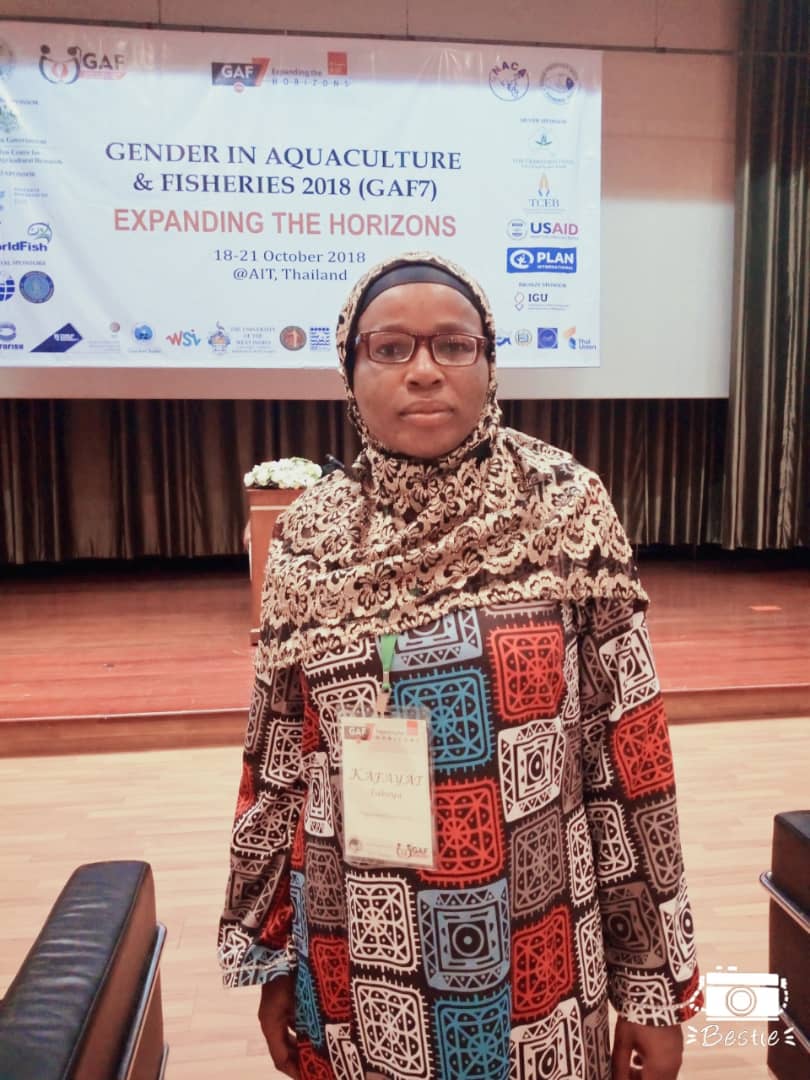
Country: Nigeria
Kafayat Adetoun Fakoya, is a Senior Lecturer in the Department of Fisheries, Lagos State University. She was born in Germany and raised in Lagos, South-West Nigeria. She holds a Second Class (Upper Division) Bachelor of Science in Fisheries (Lagos State University), a Master of Science in Fisheries Management (University of Ibadan) and a Ph.D. in Fisheries (Fisheries Biology) from the Lagos State University (2015). Kafayat has participated in validation workshops for Nigeria's fisheries and aquaculture policies; fisheries improvement projects and shrimp fishery pre-assessment. She is also a recipient of several travel grants and fellowships for participation in international conferences, training workshops and programmes on, among others, Ecosystem Approach to Fisheries, Climate Change Adaptations in Food Security and Natural Resources Management; Gender Capacity Indicators, and Transdisciplinarity. Finally, she is a distinguished member of several local and international professional associations and networks including Too Big To Ignore and Gender in Aquaculture and Fisheries Section (GAFS) of the Asian Fisheries Society (AFS) where she presently serves as its First Executive Secretary. To date, Kafayat has published a number of peer-reviewed articles in journals and also written several book chapters. She is married with four children and enjoys reading and traveling.
About her work: Kafayat is convinced that evidence-based research is key to informing responsive policies and decisions in the small-scale fisheries with the view of contributing to sustainability of the exploited fisheries resources, as well as ensuring sustainable livelihoods of fishers, fish workers and fishing communities. In view of this, she is an advocate of participatory action research and identifies synergy of local knowledge and scientific knowledge as integral to enhanced decision-making in management and governance. Her work is very versatile but presently she focuses on fisheries biology, small-scale fisheries, aquaculture, and fish in the context of food and nutrition security. Within this context, she is exploring gender issues and also making forays into the role of small indigenous fish species in food and nutrition security and sustainable livelihoods.
Q: What are you currently working on within the context of small-scale fisheries?
Presently, I am analyzing power relations, organizational capacity and empowerment of fisherfolks in small-scale fisheries. However, I am more interested in intersectionalities and the impacts of policies, particularly on women engaged in fisheries and aquaculture. Have policies enabled or limited women's social and economic performances in the subsectors? If no, then what must be done to achieve the UN SDGs on eradication of poverty and zero hunger in developing countries?
Q: If you could single out one or two most significant factors for securing sustainability of small-scale fisheries, what would these factors be?
Sustainability of small-scale fisheries can be achieved when all-inclusive stakeholders models conceptualized on human-rights based approach are engaged in interactive governance to craft resolutions to 'wicked problems'.















